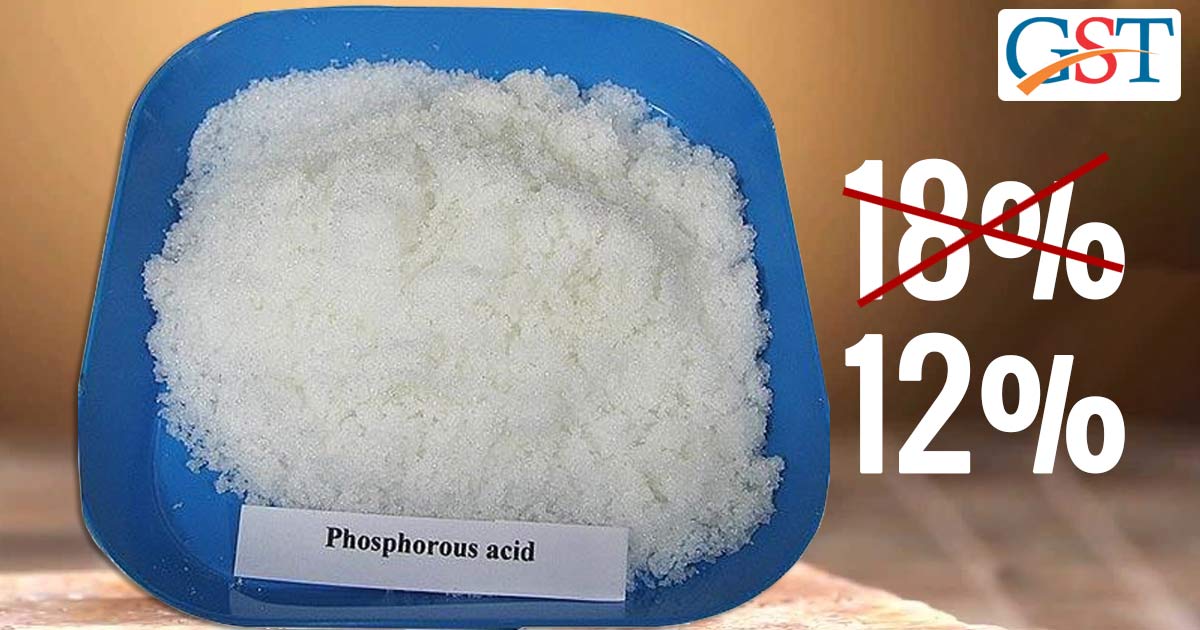According to ICRA rating agency, the fertilizer manufacturers are likely to be benefited with the reduction in tax rates under the GST as the tax rates on phosphoric acid reduced from 18 percent to 12 percent. Due to the reduction in tax rates, they will get the benefit of lower input tax credit thus decreasing the requirement of working capital.
The 25th GST Council Meeting which was conducted on 18th January 2018 had decided to cut the tax rates. Earlier 18 percent GST was levied on phosphorus acid and as such, no changes had been made by the Council on the tax rates of ammonia. On the contrary, 5% tax on fertilizers resulted in the accumulation of input tax credits for the industry. Since there is no GST on subsidy rates, it further enhances the requirement of working capital.
Read Also: GST Council 25th Meeting Updates: All You Need to Know
K. Ravichandran, Senior-Vice President and Group Head of Corporate Ratings said that the government has paid attention to the fertilizer manufacturers’ demand to cut the GST rates for the raw material needed to manufacture Diammonium phosphate (DAP) and complexes (fertilizers).
According to K. Ravichandran, “While fertilizers are taxed at 5%, taxation of inputs at 18% had led to an inverted duty structure and blockage of working capital due to large unused input tax credits. The reduction in the tax rate on phosphoric acid will result in the reduction of the input tax credits and associated cash flow mismatch for the industry.”
As opined by ICRA, the fertilizer industry had anticipated that GST Council would reduce the tax rate to 5 percent on both ammonia and phosphoric acid to solve the issues of inverted duty structure but the Council has not made any changes on the tax rates of ammonia and now 12 percent GST on phosphoric acid will lead to increase in input tax credits for the industry and thereby amount to subsequent liquidity issues.
The rating agency further states that decrease in the tax rate on phosphoric acid is beneficial for the industry but the delay in payment of input tax credit will escalate liquidity issues since the industry is already adversely affected by the delay in getting subsidies from the government.
The GST rates on drip-irrigation systems and mechanical sprayers have also been reduced by GST Council from 18 percent to 12 percent. ICRA stated that decrease in the tax rates will help the farmers to practice better irrigation systems and also encourage them to use mechanical sprayers to apply pesticides in their field. With the reduction in GST rates on bio-pesticides from 18% to 12 %, its use by the farmers should increase, said ICRA agency.
Recommended: Good and Services Tax Impact on Agriculture Sector in India
According to K. Ravichandran, “The reduction in the tax rates on drip-irrigation systems reiterates the focus of the Union government to promote irrigation facilities for the farm sector and its overall plan to double the farm income by FY2022. The decline in the tax rate on bio-pesticides is in line with the government’s intent to promote the use of these products through various government schemes and should encourage farmers to use these products as an alternative to the chemical pesticides.”











Tax rate on L-Glutamime in india